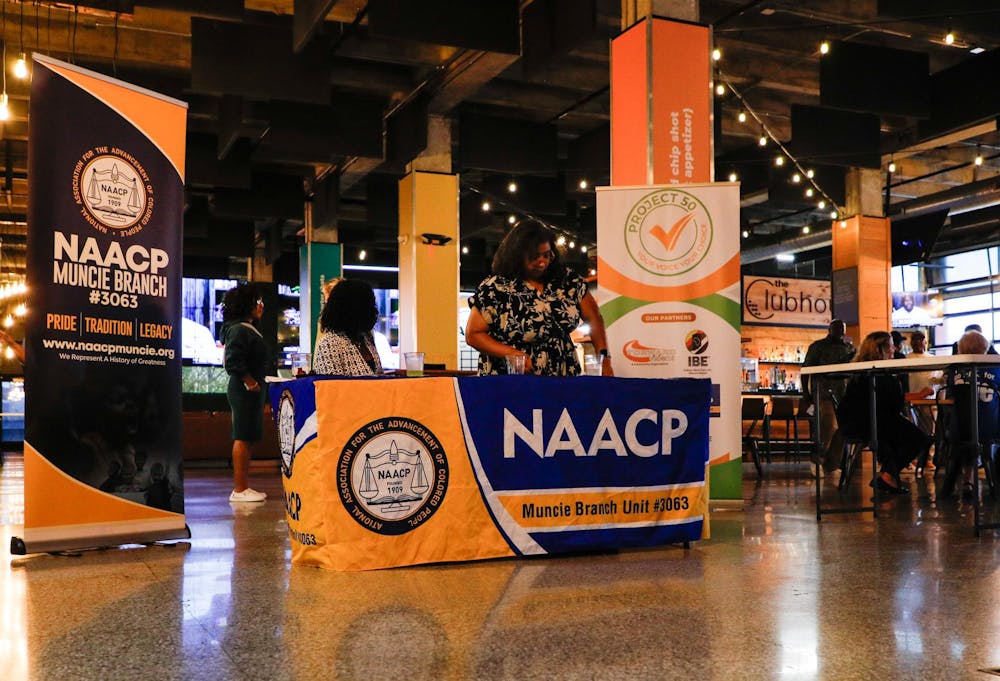During this 2024 general election, potential voters in Indiana may have more trouble getting to the ballot box.
Indiana House Bill 1264 went into effect July 1 as Public Law 65. The bill introduced new residency requirements for first-time voter registration in the name of “election security.”
For new voters, they might notice these changes in the online voter portal, which asks for a current and valid Indiana driver’s license number or the last four digits of their social security number. That information will then be compared to Indiana ID records to prove the voter’s residency.
Linda Hanson, president of the League of Women’s Voters, a nonpartisan organization that promotes voter rights and informs people on how to vote, said the legislation was meant to make elections more secure, but it also “makes [voting] much more difficult.”
She said those who do not have either an Indiana driver’s license or an Indiana social security number will then have to produce additional residency documentation. This could come in the form of a current utility bill, bank statement, government check — “whatever paycheck [or] government document that shows your name and address” — or a valid voter ID with your photo, address and expiration date.
These materials must then be presented to the election or county voter registration office before polls close on election day.
“If you're living in a dorm or you're living in a retirement home or kind of a condo arrangement where you don't get utility bills — something in your name and address — you won't have those either,” Hanson said. “There are multiple forms of residency ID that get complicated, and it makes [registration] much more stressful, that much more effort to [vote].”
Sage Waters, a second-year teaching major at Ball State University, is one such student impacted by the new legislation, which could stand in the way of her original plan to vote in Muncie.
The option, she said, would have been more convenient than voting back in her home state of Ohio. It also makes it easier since she will be living in the area for three more years and possibly more if she ends up teaching in Indiana.
Waters said she was not aware of the new legislation, and she assumed she would be able to register to vote as she had been taught in high school in Ohio. She said she does not receive much mail to her Ball State address, which would have helped her to establish her residency.

Yet, Waters is still determined to try.
“It is definitely discouraging, but I'm still going to try to [register],” Waters said. “I know how vital it is [to vote], not just for the presidential stuff, but in general … Being a college student, I already have a lot on my plate. I just don't feel like it should be as challenging.”
However, college students are not the only ones feeling the impact of the legislation. WaTasha Barnes Griffin, CEO of YWCA Central Indiana, works with voter initiatives through Project 50 and Martin Luther King Dream Team. Here, she aids in making sure other groups with barriers, such as women in “transient living situations,” have the information and resources to vote.
She said the organizations she works with help women obtain the necessary materials needed to vote by finding solutions for issues such as a permanent mailing address and a form of ID. They aid those individuals through the process of getting an ID and set them up using the address of the shelter, a P.O. box or a church.
“We want women to know that they can vote even though they don't have their own permanent address,” Griffin said. “We need their voices because they are impacted in ways that many of us are not, and it is imperative that their voices are heard.”
Director of Outreach for MADVoters Chelsea McDonnell added the new legislation has impacted some groups of people unexpectedly, such as those in nursing homes.
Regardless of their situation, for those still wanting to register to vote, time is running out with the upcoming Oct. 7 deadline in Indiana. For college students, it might be time to think about filing for an absentee ballot.
“They have to be registered to vote by Oct. 7 or they cannot vote,” McDonnell said. “If [college students] cannot get proof of their residency, they really want to start considering getting that absentee ballot because not voting is not an option.”
For those who can make it to the polls, the process will take time. Hanson said voters should be ready to vote as early as they can in case there are any complications.
At the same time, these challenges may not be enough to stop a large portion of young first-time voters. Griffin and McDonnell both said they are seeing a major upward trend of young people being civically engaged and interested in voting, especially in this year’s elections.
“The boomers and the Gen X’s, they have it ingrained that it is important to go vote,” Griffin said. “Generation Z, they are out there watching. They are out there speaking, and they are not just talking — but they are actually walking that — particularly related to the national presidential election.”
Contact Abigail Denault via email at abigail.denault@bsu.edu.





